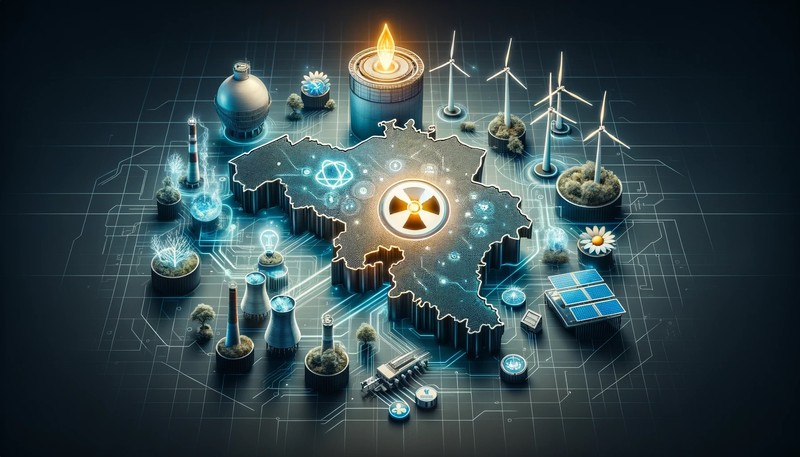Electricity market in Belgium: An overview
Primary sources of electricity in Belgium
Belgium, a key player in the European electricity landscape, relies on a diverse mix of energy sources to meet its electricity needs. The country's energy sector is characterized by a balanced approach, combining renewable and conventional energy sources.

The main source of electricity in Belgium is nuclear power, which contributes significantly to the nation's energy mix. This is complemented by renewable energy sources such as wind and solar power, as well as natural gas. The blend of these sources ensures a steady and reliable supply of electricity across Belgium.
Renewable energy expansion
In recent years, Belgium has made substantial progress in expanding its renewable energy capacity. This shift aligns with global trends towards sustainable and eco-friendly energy solutions.
Wind and solar power have seen notable growth, with several large-scale projects contributing to an increase in renewable energy production. These developments reflect Belgium's commitment to reducing its carbon footprint and embracing cleaner energy sources.
Nuclear energy's role
Nuclear energy plays a pivotal role in Belgium's electricity market. It offers a significant amount of the country's electricity supply, ensuring energy security and contributing to the national grid's stability.
The strategic use of nuclear power also aids Belgium in meeting its energy demands while maintaining a low-carbon energy profile. However, discussions around nuclear energy's future in the country's energy mix continue, reflecting a global conversation on the role of nuclear power in sustainable energy strategies.
Integration with the EU electricity market
Belgium is an integral part of the European Union's electricity market. This interconnection provides numerous benefits, including improved energy security and increased market competitiveness.
Being connected to the EU electricity grid allows Belgium to engage in cross-border electricity trading. This integration facilitates the balancing of electricity supply and demand, not only within Belgium but across neighboring countries as well.
Electricity trade with neighboring countries
Belgium's electricity network is well-connected with its neighboring countries, which include France, the Netherlands, Germany, and Luxembourg. This interconnectivity is a key aspect of the country's energy strategy.
Through these connections, Belgium is able to import and export electricity, ensuring a more efficient and stable electricity supply. This cross-border energy exchange is vital for meeting peak demand periods and managing supply fluctuations.
Future outlook
Looking forward, Belgium is poised to continue its journey towards a more sustainable and diversified energy portfolio. The focus on renewable energy, along with considerations for the role of nuclear power, will shape the future of Belgium's electricity market.
The ongoing integration with the EU electricity market and collaboration with neighboring countries will further strengthen Belgium's position as a key player in the European energy sector. These efforts are expected to contribute to a more resilient and sustainable electricity system in Belgium.
